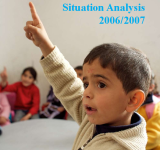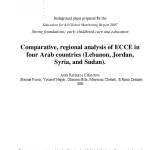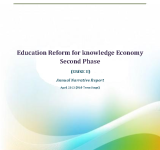يهدف هذا التقرير الى تحليل الانجازات التي تحققت للأطفال في الأردن. ويتضمن التقرير معلومات وإحصاءات عن صحة الأطفال والتعليم والمشاركة بالإضافة إلى حماية الطفل. ويشير أيضا الى ما يجب القيام به ويبين ما هي الفجوات. وكان أبرز ما خلص إليه التقرير أن الصحة العامة والصحة الإنجابية ليست موجهة بشكل كاف لاحتياجات المراهقين;; وكما أن التوعية الصحية متدنية بين الفتيات والذكور;; اضافة الى محدودية فرص الحصول على المعلومات والتثقيف حول نمط الحياة الصحي. وأن خدمات رعاية الطفولة تتويسع ببطء مع زيادة الوعي. والاشارة الى نسبة التسرب وعمالة الاطفال;; وشعور الشباب والنساء بخيارات المشاركة المتاحة. وبين التقرير أنه لأطفال اللاجئين الفلسطينيين الحق في الوصول إلى كافة الخدمات. واعتبار أن الفقر وسوء الأحوال الصحية ونقص التعليم;; جميعها عوامل تحرم الأطفال من كرامتهم;; وتهدد حياتهم وتقضي على آمالهم. وكما يقدم التقرير توصيات بشأن ما يجب القيام به لزيادة تحسين حالة الأطفال في الأردن.


